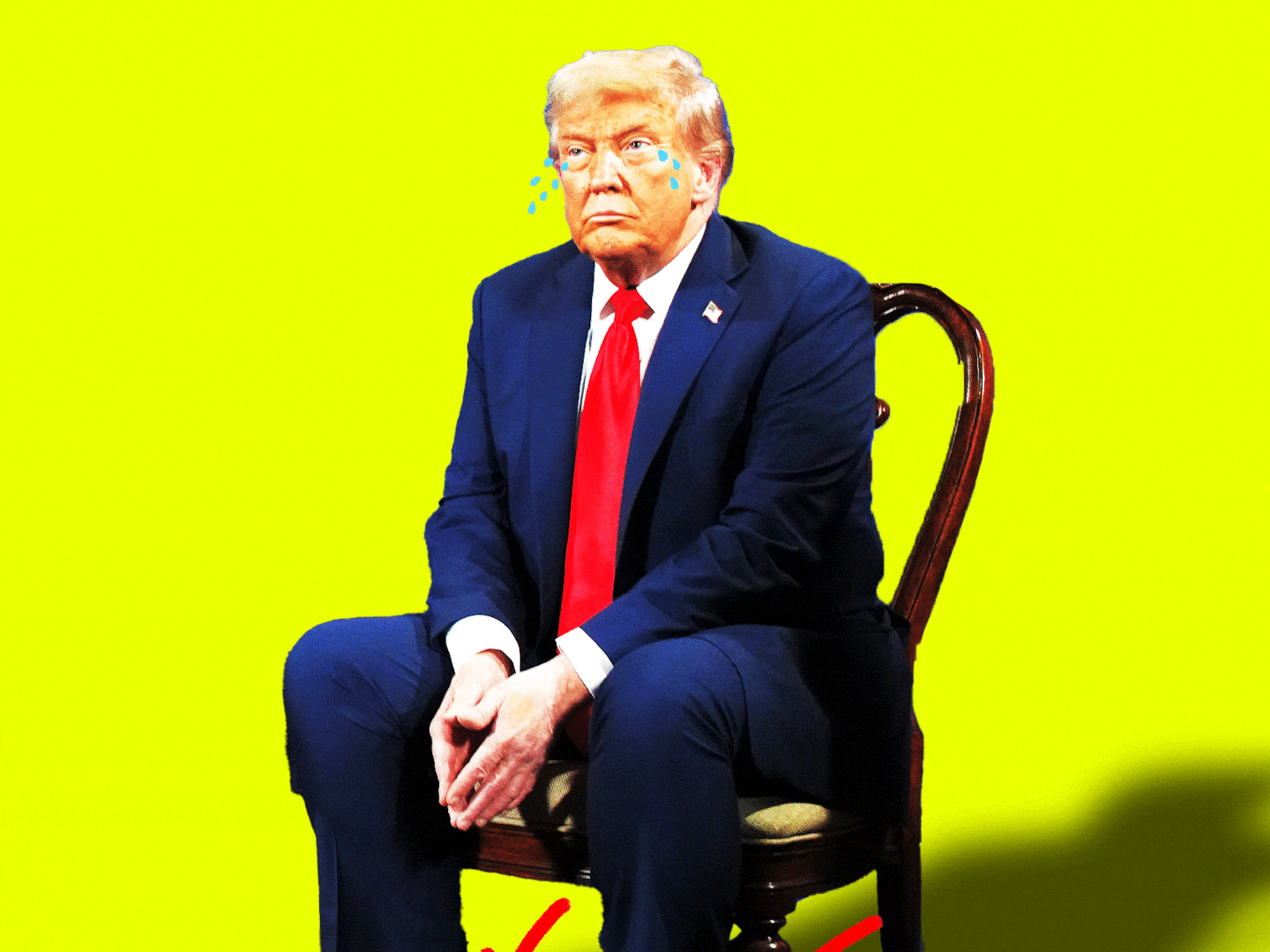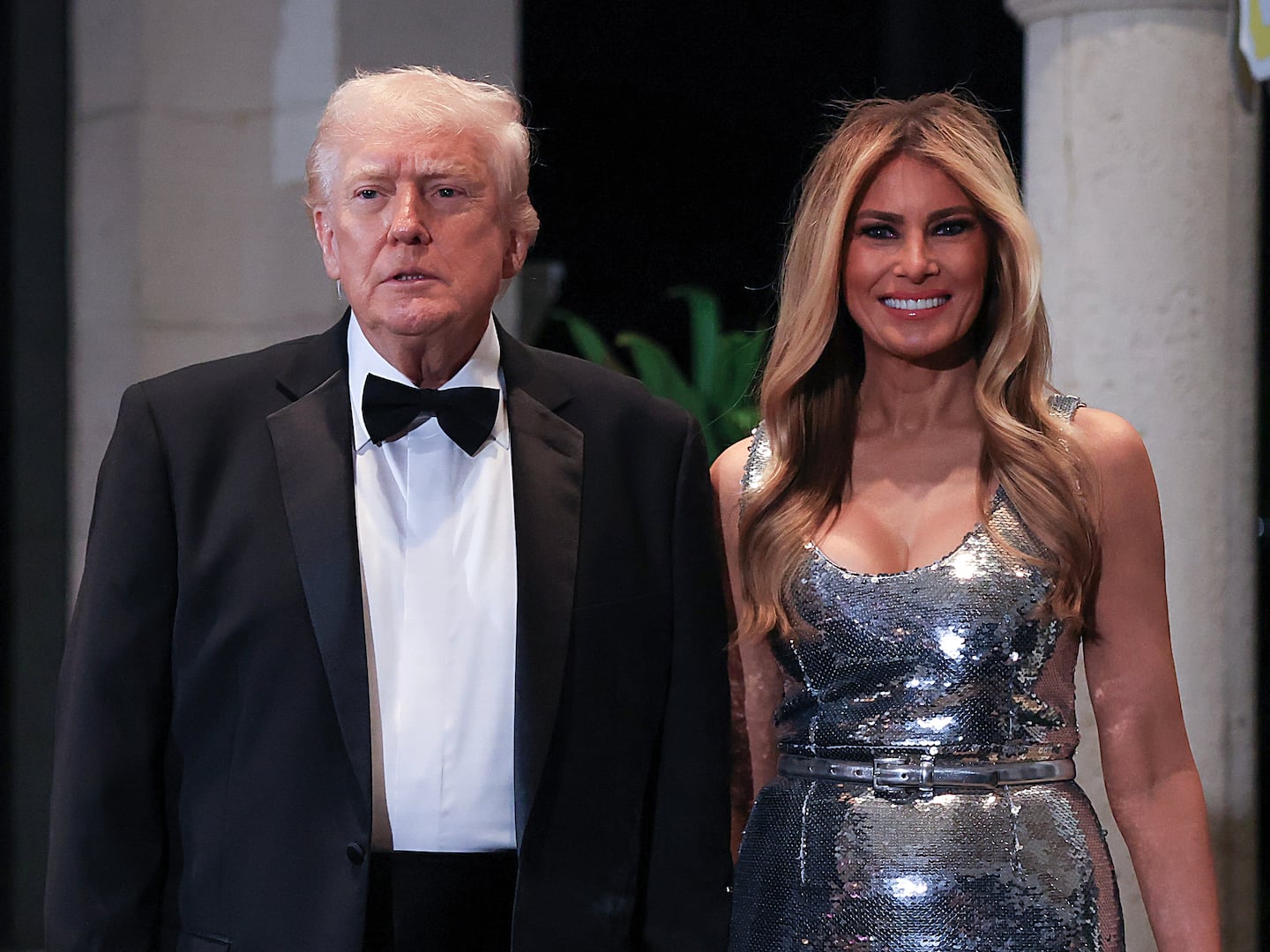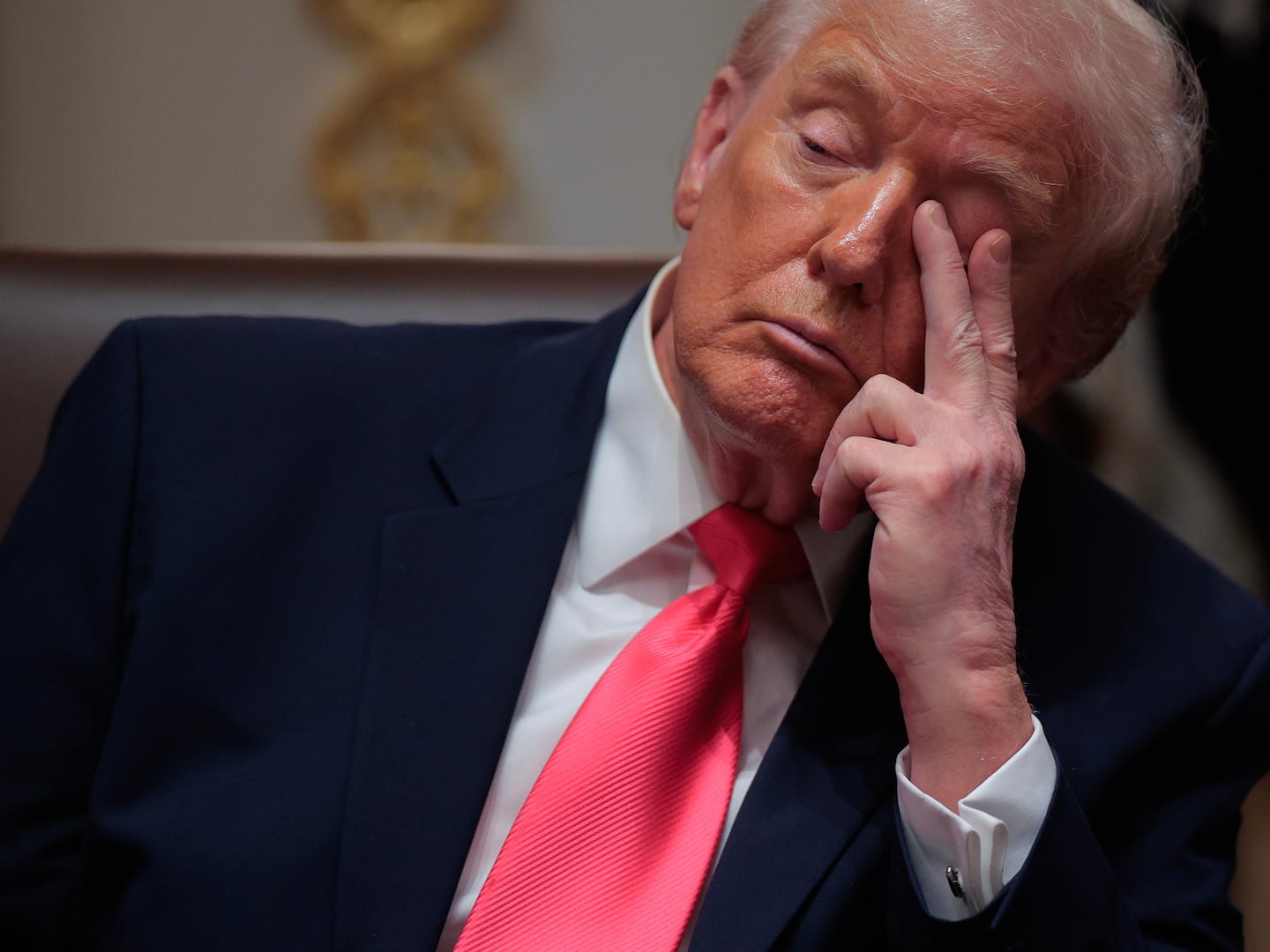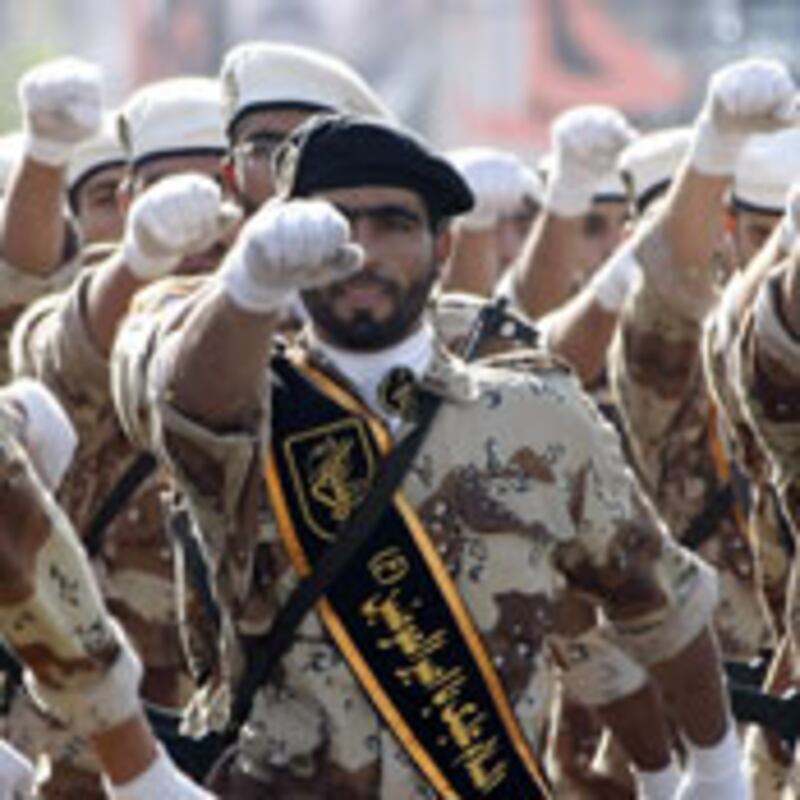
Reza Kahlili is the pseudonym for a former member of Iran’s Revolutionary Guard who worked as a CIA agent throughout the 1980s and 1990s. In his new book, A Time to Betray, Kahlili describes in vivid detail how his hopes that the 1979 revolution, which overthrew Iran’s Western-backed dictator Muhammad Reza Pahlavi, would lead to a free and democratic Iran were dashed when he saw with his own eyes the unspeakable horrors that the new Islamic republic wrought on the Iranian people. After the regime executed his childhood friend, Kahlili had had enough. While on a visit to the United States, he reached out to the CIA and offered his services as a spy. He then spent the next decade providing detailed information to U.S. intelligence agencies about the inner workings of Iran’s dreaded Revolutionary Guard, as well as the regime’s race to build a nuclear weapon. As Kahlili claims in this exclusive interview with The Daily Beast’s Reza Aslan, Iran will be a nuclear-armed state in the very near future. And, as far as Kahlili is concerned, the only way to stop that from happening may be to attack Iran now, before it gets a nuclear weapon.
“The focus should be on the main figures of the clerical regime who are running the show.”
DB: How did your life as an Iranian begin? What led you to reach out to the CIA?
RK: I went back to Iran in 1979 because of all the hope. It was a jubilant atmosphere and I really wanted to be part of it. I believed there was going to be freedom for all. It really broke my heart when I saw, up close and personal, the hurting, the pain, the betrayal of the promises that Ayatollah Khomeini and the clerics had made to the people, that they were not going to interfere in politics, that everybody was going to be free to express their opinion, so forth and so on. It was a big blow to my spirit. I was in a state of confusion. I couldn’t stand it and I wanted to leave the country.
So I came to the U.S. I thought that, just by the information that I had, that the U.S. could take it, that perhaps they were unaware of the atrocities happening in Iran, the purpose of the Revolutionary Guards, and the clerics, and the expansion of radical Islamic beliefs. I still don’t know how I made that decision and how I did it, but I know that there was a lot of anxiety and back and forth in my mind, “Should I do it? Should I not?” But anyway, I contacted the FBI.
To my disappointment, they were not really aware of the situation in Iran and the leadership and all of that. But then they set up another meeting and in that meeting they introduced me to a person who happened to be a CIA officer. He debriefed me and, as I stated in the book, he came out and asked me if I wanted to help my country and if I wanted to go back to Iran and continue what I was doing [in the Revolutionary Guard]. I accepted. So that’s how I started to betray my country. I became a spy.
DB: You thought of it as betraying your country?
RK: I mean, acts of espionage, no matter what nationality you are, is an act of betrayal. Had the Iranian regime caught me and tortured me and executed me, I couldn’t have objected, because by any rules of any government, that is an act of betrayal. But in my heart I believe that I did not betray the people of Iran. I did not betray Iran, but I betrayed the system, the government, and that’s how I thought about it.
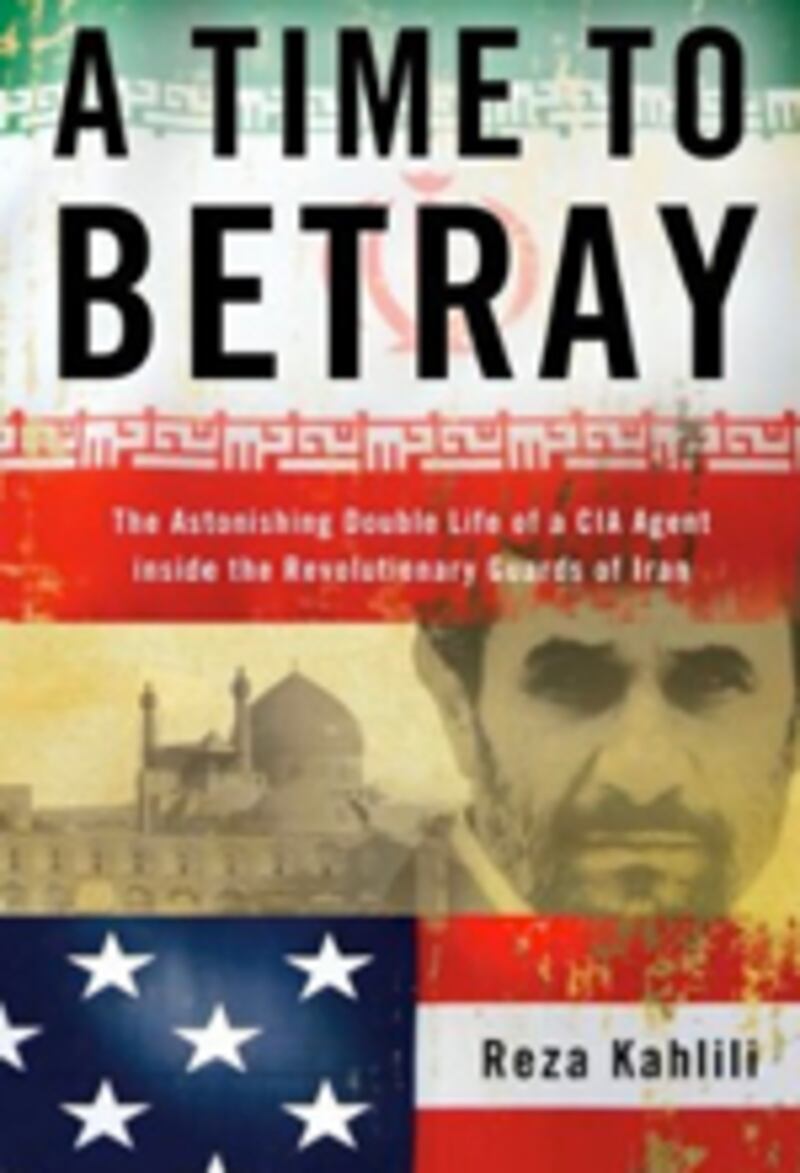
DB: What exactly was your position with the Revolutionary Guard?
RK: For security reasons, I can’t tell you the exact position. But I can tell you that I was hired because of my expertise to help with the infrastructure, the training of the guards, and I was in a base where one of the intelligence units was also based. I had access to a lot of information. I was not trained to be a military person, carrying a gun and so forth.
DB: As you know, here in the United States, very few people know exactly what the Revolutionary Guard is. It is an organization clouded in mystery and secrecy. How is the Guard structured? And how much do they speak with a single voice, would you say?
RK: The leadership of the Revolutionary Guard speaks with one single voice. The leadership is in line and under the control of the Supreme Leader Ayatollah Khamenei. Understand that there are many other people behind the scenes who are controlling the Revolutionary Guard. Such as [radical hardline cleric] Ayatollah Jannati or Ayatollah Mesbah-Yazdi [a fanatical cleric who is also Mahmoud Ahmadinejad’s spiritual mentor].
The top clerics who are connected to Ayatollah Khamenei, they all have a say. The leaders of the Revolutionary Guard, individually they could be changed overnight. The majority of the forces are true believers—common people with not much education. And these are mostly from the poorer population. I was among them. I saw them. I lived with them. We went to the front [in the Iran-Iraq War] together. These are very simple-minded people. They are religious people, and a lot of them are not fanatics. They believe in Islam, they believe in Allah, they believe that this Islamic government is righteous. But when they see [the government doing] wrong, they recognize it. And then you’ve got the specially trained forces—the Quds Force—which are much more radical, much more hardline. They take orders from the leadership of the Guards.
DB: The role of the Revolutionary Guard in Iranian society has changed since the days of the Islamic republic’s founder Ayatollah Khomeini. In fact, some Iran analysts say they’ve begun to act increasingly like an independent agent, as though they don’t take orders from anybody anymore. What do you say to that?
RK: Well, you see, there’s been some misconception about the leadership infrastructure of Iran. And the best analysts in the media continuously keep on doing that. They don’t know how much power the supreme leader holds. And now they think that the Revolutionary Guard is running the country independently and not even taking orders from the supreme leader.
My opinion is that this is not correct. The leadership has always been in the hands of the more fanatical clerics. The Guard’s leaders cannot survive independently if the clerics do not support them. Both need each other. The Guard is under full control of the clerics. So in my opinion—and I don’t claim to know everything just because I was a Revolutionary Guard member—in my opinion, the focus should be on the main figures of the clerical regime who are running the show. This focus on the Revolutionary Guard as a separate entity and a force who will be able to govern on their own, in my opinion, is wrong.
DB: What would you say is the relationship between the Revolutionary Guard and Ahmadinejad?
RK: The reason Ahmadinejad is there to begin with is because Ayatollah Khamenei, Jannati, and Mesbah-Yazdi want him there. You see, there are two separate opinions in the clerical leadership. One favors a very drastic and harsh foreign-policy approach, and one wants a more moderate approach. But both are in union with the fact that the country should move ahead with the nuclear project and that the country should support Hezbollah, Hamas, Islamic Jihad, and the rest, and expand its power throughout the Middle East. But [the difference between the two is that] one believes that you have to go full force ahead, not give a damn about what the world thinks, and one is saying, ‘no, that’s not the way.’ I believe that Ahmadinejad is among the group that believes that we shouldn’t give a damn about the world and just move full speed ahead. That’s the group that is in power now.
DB: You keep saying “full speed ahead.” Maybe we need to stop and ask this question: What does the Revolutionary Guard want for the country?
RK: What does the Revolutionary Guard want? This is a big organization. It’s several divisions. They’re spread throughout the Middle East, the Persian Gulf, Africa. Basically they want to become a nuclear-armed organization. They will achieve that. They’ll achieve reaching the point where they can put together an atomic warhead.
DB: What were your thoughts being in the United States watching what was going on in the post-election turmoil in this past summer?
RK: Well I was very hopeful. I mean, hundreds of thousands of people were coming out on to the streets. This was unprecedented. But I think that the West lost a great opportunity. They should have been more vocal. They should have come out from the early days. This theory that if you say anything in support of the uprising it’s going to be interpreted by the Iranian government as interference by the West… I mean no matter what the West does, they will always be blamed. The uprising is not over, but Iranians need leadership and [Ahmadinejad’s main challenger] Mir Hossein Mousavi, so far, has not been capable of being a strong leader in guiding the people. So you know I’m still honestly hopeful. People are tired of this system. You never know. It could be coming to a point that we see major change.
DB: What do you see Iran looking like five years from now?
RK: Obviously no one can see into the future, but there’s one thing that I believe: If the West sticks with sanctions, and its mild approach to trying to change the behavior of the Iranian leadership, Iran will become a nuclear power. If Iran becomes a nuclear power, if it becomes a nuclear-armed country, the Iranian people are going to pay a very, very heavy price. And you could see major destruction in Iran. Now I hope to God that doesn’t happen.
DB: What do you mean? Be specific. What do you mean by major destruction?
RK: I think Iran accessing a nuclear bomb, it is going to cause major war with Iran. And I believe the West is moving toward that by just dragging this thing along. This is going to come to a head, and war could break out. And I hope that’s not going to be the case. But if they become nuclear-armed, I think the Iranian people are going to pay a very heavy price.
DB: What’s the option? I mean you keep saying that the West isn’t doing enough—what is the option? What should they be doing?
RK: Look, if you can’t deal with the Guards right now, how are you going to deal with them if they have a nuclear bomb? If they have nuclear-armed warheads and if they cover the whole world? What are you going to do? Study the clerics, the leadership behavior for the previous decades, they’ve taken the world hostage many times over, and they have won. Now just imagine that they have a nuclear bomb. The Saudi kingdom would be in jeopardy. Iraq… forget about it, it’s already under control of Iran. They’re helping the Taliban. In Lebanon, Hezbollah is ruling. Jordan could be in danger, Syria could be empowered, Israel could be threatened day and night, Hamas would be empowered. You could see nuclear proliferation moving into Venezuela. It is going to be unimaginable.
We just don’t know how dangerous the consequences would be. It’s serious. This is a serious situation, and the West is not dealing with it the way they should. One thing they could do very simply is cut off shipping lines—all airspace and shipping lines closed to everything coming into Iran and going out of Iran.
DB: You know that according to all international laws what you are describing—the cutting off of shipping lines—is an act of war.
RK: Well, let it be an act of war. You’ve got two choices: Either take out the Guard right now, or wait until they have a bomb. It’s a matter of who takes the more serious step. Let it be an act of war and let’s see what Iran does. Give them a deadline. No one has taken a serious stand to see if they will back down, and unless you do, they’re going to become a nuclear-armed state. If Iran shoots one bullet [at U.S. troops], we can control the Tehran skies. I mean, I believe people will bring this government down, once they know that the West is serious about it and they don’t have to fire a single bullet. So the decision comes to this, and this is the bottom line: Do we accept Iran as a nuclear-armed state or not? Anything else is just total hot air. It is just one question, do we accept it or not?
Plus: Check out Book Beast, for more news on hot titles and authors and excerpts from the latest books.
Reza Aslan is author of the international bestseller No god but God and How to Win a Cosmic War (published in paperback as Beyond Fundamentalism: Confronting Religious Extremism in a Globalized World). Follow him on Twitter and Facebook.


